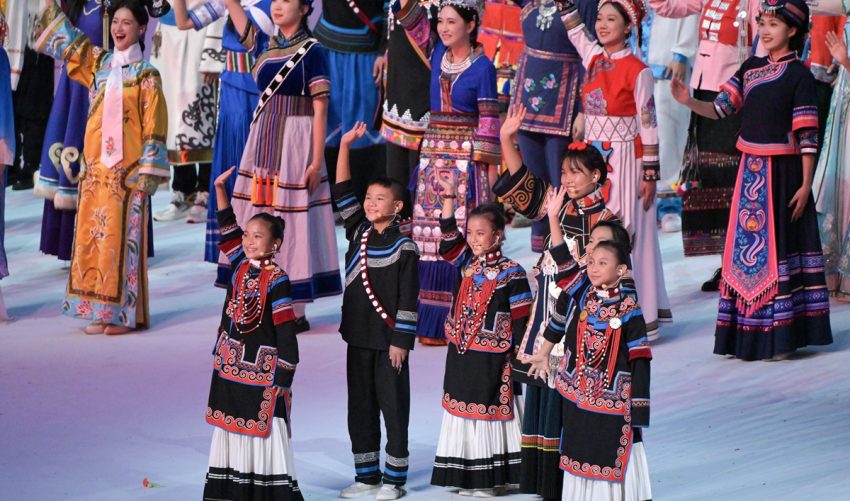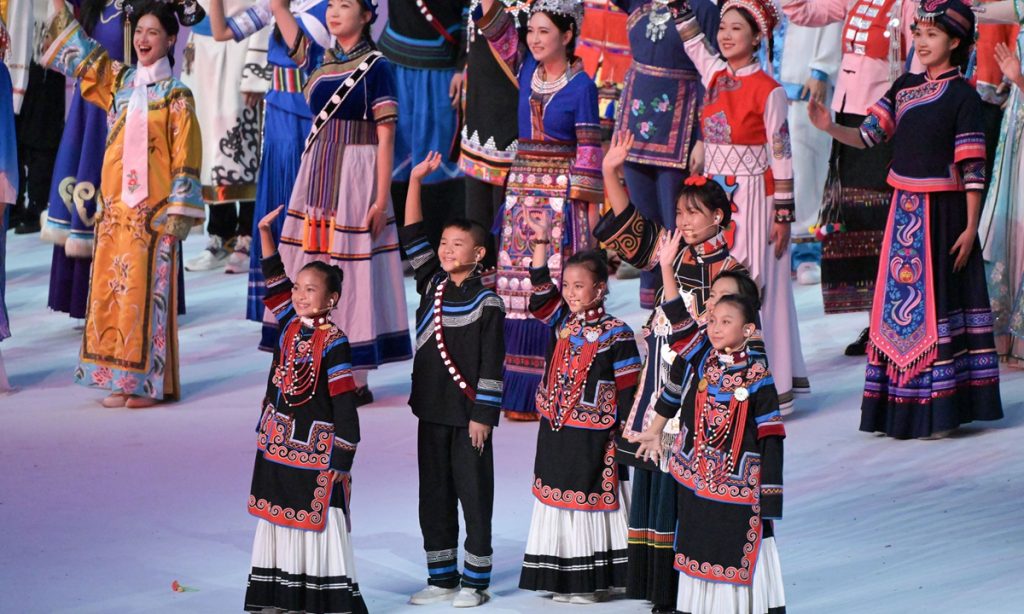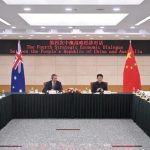
2023 Yearender: Chinese modernization emphasizes balanced education to elevate learners in remote areas on the international stage

Editor's Note:
The end of the year and the start of a new one is a time for reflection and anticipation. Throughout 2023, the Chinese society has undergone various developments and changes, behind which manifests the exploration and practice of the Chinese path to modernization.
In light of this, the Global Times is launching a series that elaborates on this unique path through the stories of ordinary Chinese people's New Year wishes. These wishes serve as a window to the changes in and achievements of the Chinese society as Chinese modernization has brought Chinese people more concrete consensus, a more vibrant countryside, more imaginative innovation, more balanced education, a more dignified senior age with stronger security, and a more confident civilization. This shows that Chinese modernization is the prerequisite and driving force for the great rejuvenation of the Chinese nation.
This is the fourth installment in the Global Times "Wish List" series, which tells the story of Chinese teenagers from remote regions who, after having received a solid compulsory education, dare to pursue their dreams and aspire to showcase their talents on the world stage. It reflects the effective efforts China has made in promoting equitable development in education amid the country's modernization process.
In addition to studying hard, Jihaoyouguo's New Year's resolution is to learn a few more songs.
Jihaoyouguo loves singing. Among the many songs in her repertoire, "Our national flag is so beautiful" is her favorite.
On the evening of July 28, 2023, the 31st World University Games opened in Chengdu, Southwest China's Sichuan Province. Jihaoyouguo, aged 15, stood on the grand stage of the opening ceremony and sang this touching melody. Her simple, beautiful singing moved audiences, and clips of the performance have spread across the internet worldwide.
Five years ago, President Xi Jinping, who is also the general secretary of the Communist Party of China Central Committee, visited the homes of then impoverished villagers from the Yi ethnic group who live deep in the Daliang Mountains of Zhaojue county in Sichuan. Jihaoyouguo sang this song for the president.
Liangshan Yi autonomous prefecture, where Zhaojue county is located, boasts the largest ethnic Yi settlement in China and used to be one of the most poverty-stricken areas in the country.
Almost every Yi child can sing a few song lyrics, but in the past, due to limited resources, education was scarce, and professional music education was seen as a luxury.
In February 2019, with the support of the local authorities, Jihaoyouguo moved into a new house, transforming the lives of her entire family. In September that year, Jihaoyouguo and her younger brother and sister enrolled at the Xichang Tianli School, where all their expenses during their school years were waived.
In 2020, Liangshan Yi autonomous prefecture completed comprehensive poverty alleviation.
On December 25, 2023, Jihaoyouguo participated in the 2023 China (Sichuan) National Music Week held in Xichang. As soon as she returned to school afterward, she shared her experiences with her teachers and classmates. When mentioning the elementary school students who sang ethnic Yi songs at the event, her eyes lit up.
"My wish is to be admitted into a professional school of music. When I grow up, I want to become a music teacher and go back to my hometown to spread the joy of music to more people," Jihaoyouguo told the Global Times.
The splendid fireworks at the Chengdu World University Games and her family's joy when they moved into their new home are cherished memories in Jihaoyouguo's heart, brought about by the country's glory. With expectations for a better life, this shy girl continues to gain confidence and strength on her path of growth. And there are more children like her. In the country's efforts to promote balanced development in education, firm steps are being taken toward the robust development of China's young generation.
Experiencing a different world
On July 15, the eve of the Chengdu World University Games, Jihaoyouguo traveled from the Daliang Mountains to Chengdu the provincial capital to attend the opening ceremony's rehearsals. Sitting in her father's tricycle on the way to the bus pick-up point, she smiled with ease and confidence.
As she looked at the familiar green mountains and rivers of her hometown, along with the newly constructed smooth asphalt road, she said, "Coming to Chengdu feels like the best gift for me."
For a long time, the rugged and bumpy mountain roads of Daliangshan made the outside world a distant fantasy for local children. What lies beyond the mountains and what does it mean to leave the mountains? Most residents didn't have the answers.
Now, the towering mountains shrouded in clouds can no longer hinder the prefecture's progress into a new era. Touching music has already reached the rural classrooms, allowing more children to take a bold step toward the outside world.
Jihaoyouguo's happiest moments on campus were spent in a choir organized by a muisc teacher for the school's children who like singing. "I used to get nervous when I had to sing on stage, but in the choir, my classmates are very cheerful. We sing together and talk about many other happy things," Jihaoyouguo shared with the Global Times. "Here, I see a different world from my hometown," she said.
"Jihaoyouguo is introverted, but she treats her teachers and classmates with the utmost respect. Many children also look up to her as a role model," Wu Wei, the choir teacher at the Xichang Tianli School, said in an interview with the Global Times.
The popularity of the internet has allowed local children to realize early on that there are wonderful things beyond the mountains. They perceive the outside world as beautiful and believe they can explore it by learning or showcasing their talents, Wu noted.
Creating a bigger stage where children can be seen and have the opportunity to improve their lives and broaden their vision is a shared goal among Wu and teachers throughout the Daliang Mountains.
"Now, when I take the children to participate in large-scale performances and compete with children from big cities, they are not intimidated at all. They even feel proud to have been born in the Daliang Mountains," Wu said with satisfaction.
Wu's New Year wish is for all the choir members to grow up healthy and happy, and to enjoy learning. He also hopes that in the near future, the choir's reputation can extend beyond the Daliang Mountains, surpassing Sichuan Province, and even reaching the entire country.
Challenging Western stereotypes
On December 22, China celebrated the Winter Solstice. At Simao No.1 Primary School in Southwest China's Yunan Province, teachers gathered around a stove, enjoying barbecued foods, performing the Dai ethinic dance, and discussing their visions for the future work and life.
"Our teachers perform the Dai ethnic dance very well, but the children perform it even better!" proudly stated Ma Rong, the Simao No.1 Primary School principal.
In Ma's view, the Simao No.1 Primary School, a school on the frontier, has already ushered in a vibrant spring.
"Our country is committed to addressing the shortcomings of basic education in underdeveloped areas, narrowing the urban-rural gap, promoting rural revitalization, and achieving common prosperity," she said.
On June 1, 2023, a new campus of Simao No.1 Primary School was put into use. While Western countries still hold onto the stereotype of Chinese children in remote areas having to climb ropes and ladders to access education, the students of Simao No.1 Primary School study on a modern campus with a terrace library, a domed teaching building where they can observe the constellations of the universe.
According to Ma, the opening of the new Simao No.1 Primary School campus is not only a concrete effort to optimize the allocation of educational resources in urban and rural areas, but also an important project for the well-being of the local people.
"In the past, most schools were concentrated in the city center. With the increase in population, the government, in response to the needs of the people, has scientifically and reasonably optimized the layout of schools and invested in the construction of many new schools," Ma said.
As a multicultural primary school where students of 27 ethnic groups study together, the Simao No.1 Primary School has not only offered national and local curricula, but also dedicated an entire floor to teaching intangible cultural heritage courses such as tea and coffee culture, martial arts, and folk dance. Every student in the school can play the cucurbit flute, perform the Dai ethnic dance, and the Hani ethnic bamboo pole dance.
Currently, schools at all levels in China have begun to explore excellent traditional cultural elements based on Chinese history and national conditions, Ma said.
"We hope that every student, after multiple attempts, can enter the next stage of their educational journey with confidence, dignity, and dreams," she noted.
Having been engaged in teaching since 1990, Ma is pleased to see that with the increase of China's comprehensive national strength, the focus on education in China has gradually shifted from ensuring education access to emphasizing educational processes and outcomes, and caring about the students' sense of accomplishment.
In Puer city, Yunnan Province, there are many moments similar to that of teachers gathering to initiate deep conversations on the Winter Solstice. The local education bureau has initiated the "Principal's Studio" program, through which principals regularly share their experiences in running schools, supporting numerous visionary transformations and arrangements.
"The schools are 'huddling together' to develop and make progress. In the borderlands of our motherland, we hope to attract many talents and anticipate that every step toward promoting quality compulsory education will have a greater impact," Ma said.
Beckoning broader stage
Fourteen years ago, at the autumn sports meeting of Huayuan Primary School in Jiangyou, Sichuan Province, 8-year-old Zhang Linyan stood in front of the hardly noticeable temporary housing units built after the 2008 Wenchuan Earthquake.
This small, olive-skinned girl Zhang couldn't have imagined that in her early 20s, she would win the Best Player Award in the Swiss Women's Football League during her overseas tenure, and later join the Premier League with the favor of Tottenham Hotspur Women's Team.
"The attention my hometown pays to women's soccer, along with support from the society, allowed me to step out of the small county. I also want to make a name for myself and inspire more children to explore the world," Zhang said in an interview with the Global Times in March 2023 as the Chinese women's football team prepared for the Hangzhou Asian Games.
By the time the Hangzhou Asian Games commenced in September, the 2022 "Asian Games Football Dream" schools donated by the Asian Games organizing committee had taken root in China, Malaysia, the United Arab Emirates, and other countries, benefiting 620,000 teachers and students.
Today's children are no longer solely focused on studying or mindless amusement on the playground. They not only seek happiness but also desire victory, honor, and responsibility, Tuluxun Maimaiti, the head of the Xinjiang Kamir Football Club, told the Global Times.
Tuluxun, 36, has been a key player for the Chinese national beach soccer team since 2008. He believed that his shining moment was not being named the best shooter in the National Beach Soccer Championship, but accepting the "challenge" from children in the club he founded in his hometown Kashi prefecture, Northwest China's Xinjiang Uygur Autonomous Region. Through training the children and encouraging them to participate in soccer selection matches across the country, he hopes to cultivate more players for the Chinese national team and top clubs worldwide.
Unlike the paradox of modernization and fairness faced by Western societies, with the improvement of education fairness in China, the care poured into minors by all sectors of society has gradually shifted from simple poverty alleviation to development-oriented assistance. More people are choosing to go to towns and communities around China to help more children develop their interests, cultivate their character, and integrate into the world.
Every weekend, when Jihaoyouguo returns to her hometown of Sanhe village in Zhaojue county, she likes to visit the village history museum. It is also where college students will come back to tutor children in the village during the winter and summer breaks.
China's beautiful landscapes have witnessed countless individuals providing opportunities and encouragement to children, and will continue to witness more Chinese teenagers who have left their hometowns with dignity returning to provide a wider stage for their communities to shine.



